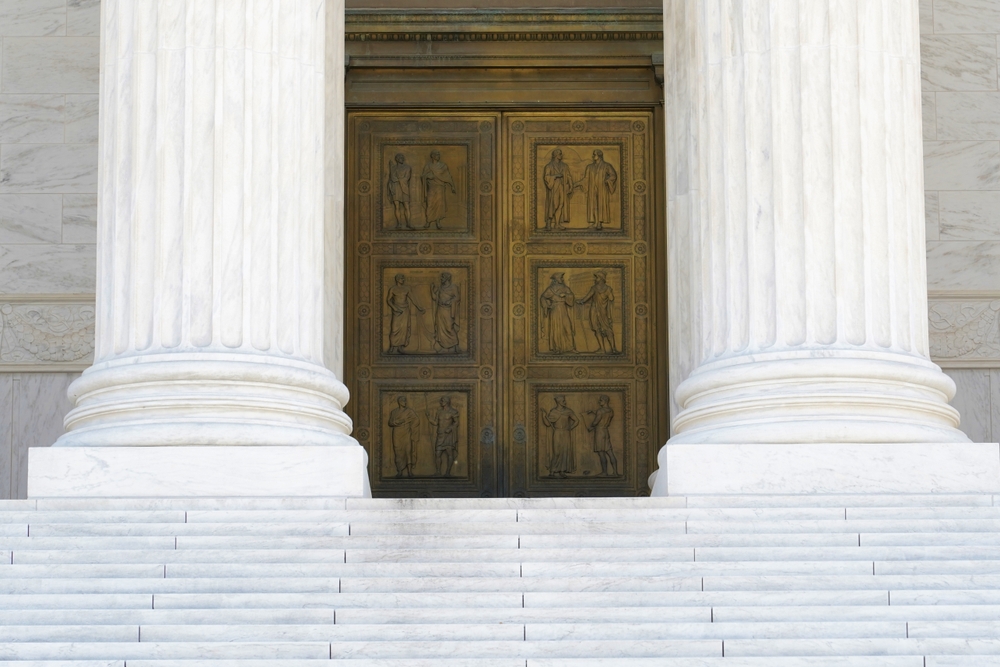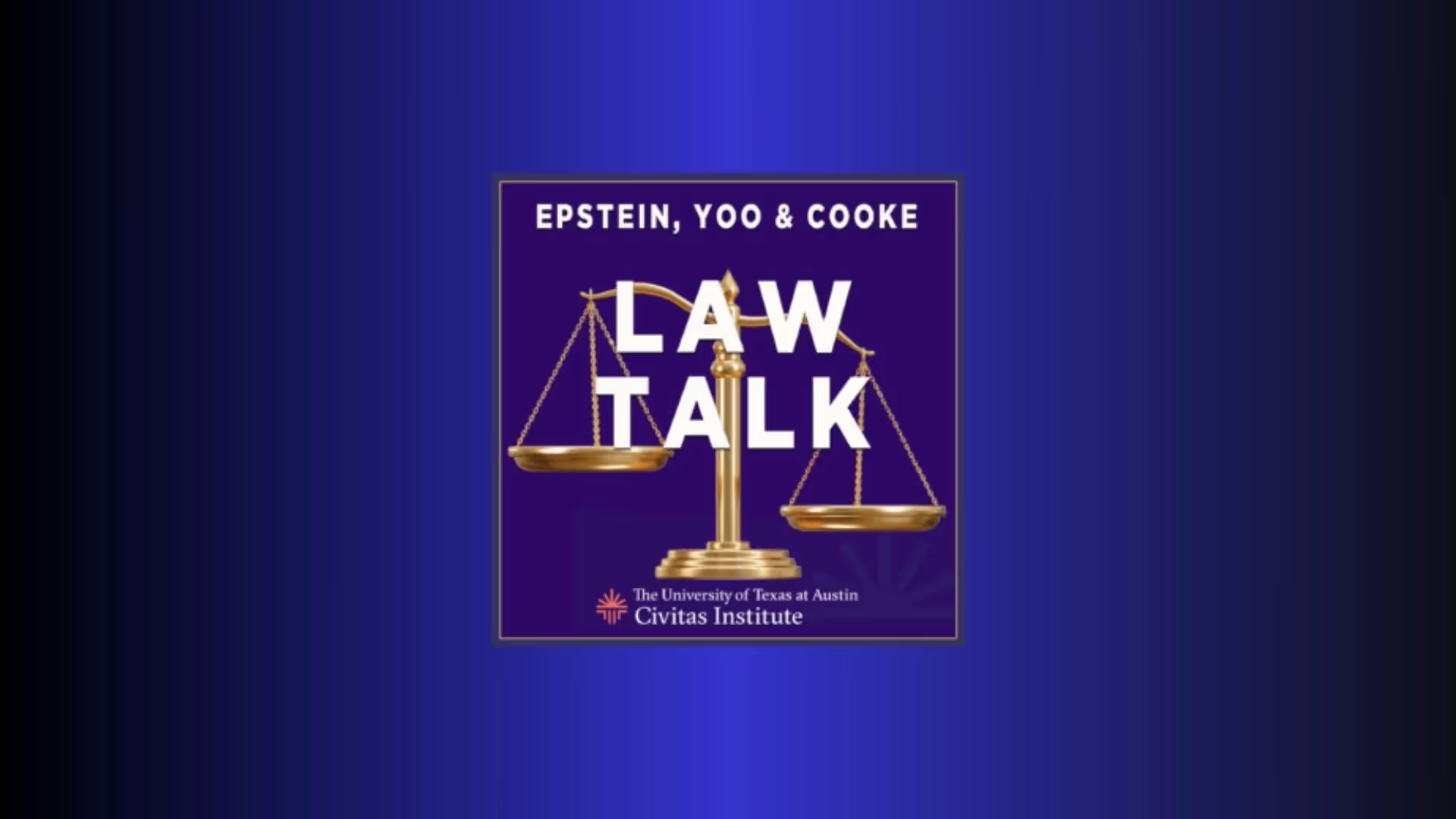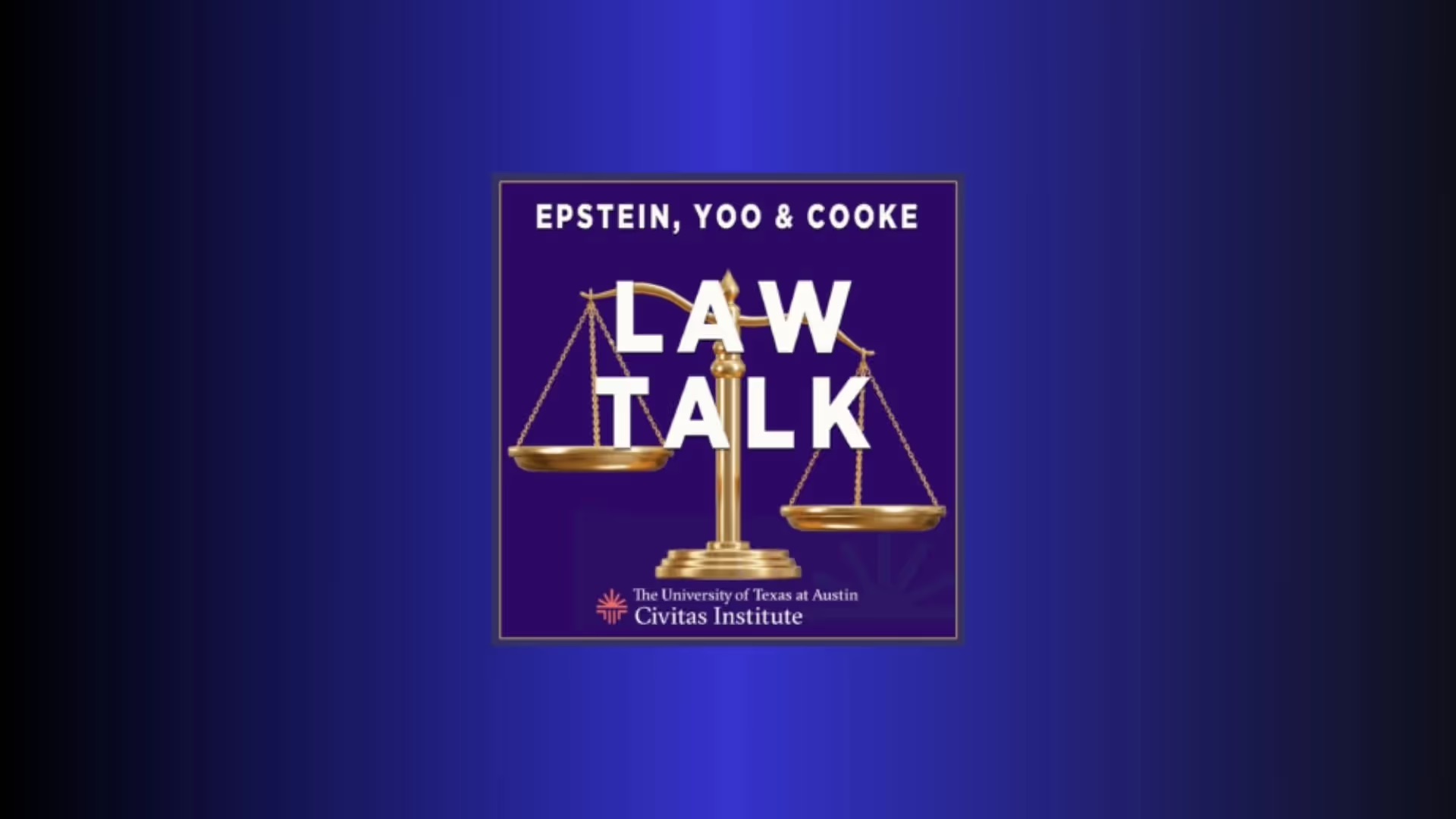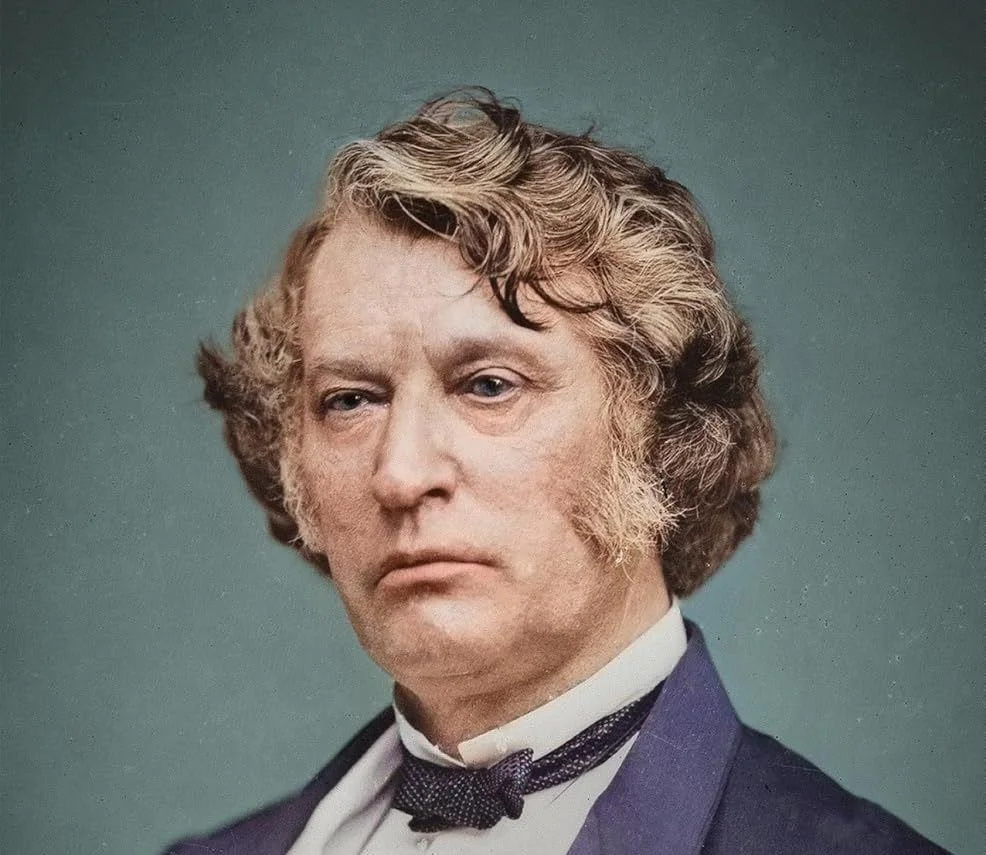Law Talk: Does AI Dream of Constitutional Rights?
Law Talk returns and in this excursion, Charles C.W. Cooke, Richard Epstein, and John Yoo tackle a grab bag of constitutional issues with their usual mix of legal scholarship and exasperation (typically with each other). First up: the state of Maine, apparently auditioning for a role in a dystopian novel, bans a legislator from speaking because her views on gender in sports offend the ruling party. Epstein and Yoo are, unsurprisingly, not impressed. Then it’s on to Trump’s latest target—Harvard—where he wants to yank their tax-exempt status for what he sees as race-based admissions sins. Yoo says, “Hey, Bob Jones University got smacked for less,” while Epstein warns that burning down universities to own the libs might be a bit much. Things get even spicier with the arrest of a Wisconsin judge who allegedly helped an illegal immigrant sneak out the back door—Yoo and Epstein agree it’s legally justified, but question whether perp-walking a judge was really necessary. Finally, the gang ponders whether chatbots have First Amendment rights, with the consensus being: no, and let’s hope the robots don’t hear us say that.
Law Talk
Law Talk’s 2025 Supreme Court Recap
Richard Epstein, John Yoo, and Charles C.W. Cooke unpack one of the most consequential Supreme Court terms in recent memory.

Trump v. Everyone: War on Drugs, War on Courts, War on the Fed
A new episode of Law Talk featuring Richard Epstein, John Yoo, and Charles C.W. Cooke.

Constitutionalism

Amicus Brief: Hon. William P. Barr and Hon. Michael B. Mukasey in Support of Petitioners
Former AGs Barr and Mukasey Cite Civitas in a SCOTUS Brief

Rational Judicial Review: Constitutions as Power-sharing Agreements, Secession, and the Problem of Dred Scott
Judicial review and originalism serve as valuable commitment mechanisms to enforce future compliance with a political bargain.

Supreme Court showdown exposes shaky case against birthright citizenship
Supreme Court will hear challenges to Trump's order ending birthright citizenship, testing the 14th Amendment's guarantee for babies born in America.

Slavery and the Republic
As America begins to celebrate its semiquincentennial, much ink has been spilled questioning whether that event is worth commemorating at all. Joseph Ellis’s The Great Contradiction could not be timelier.

Two Hails For The Chief’s NDA
Instead of trying to futilely plug the dam to stop leaks, the Court should release a safety valve.




.avif)









.avif)

